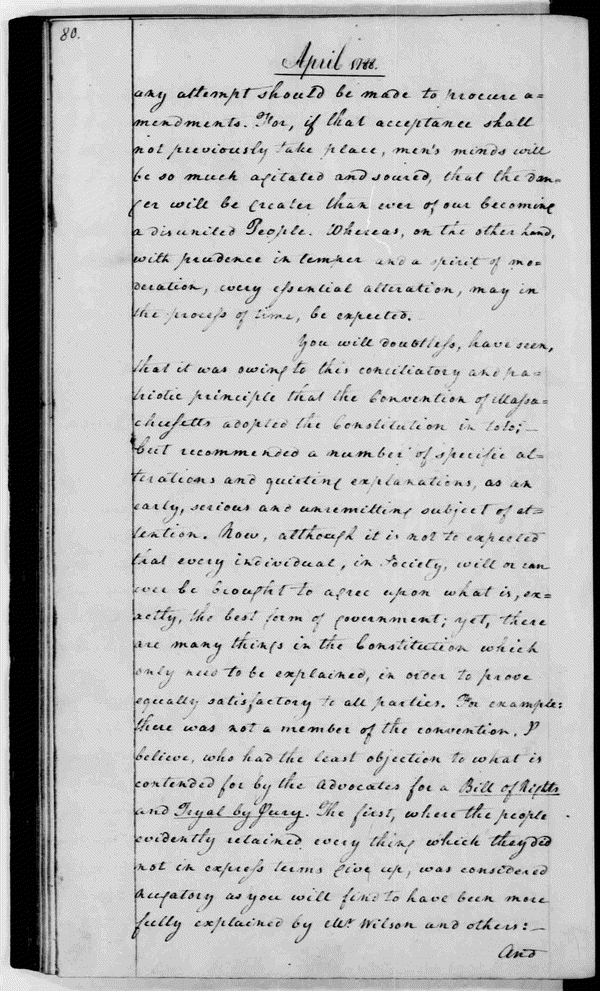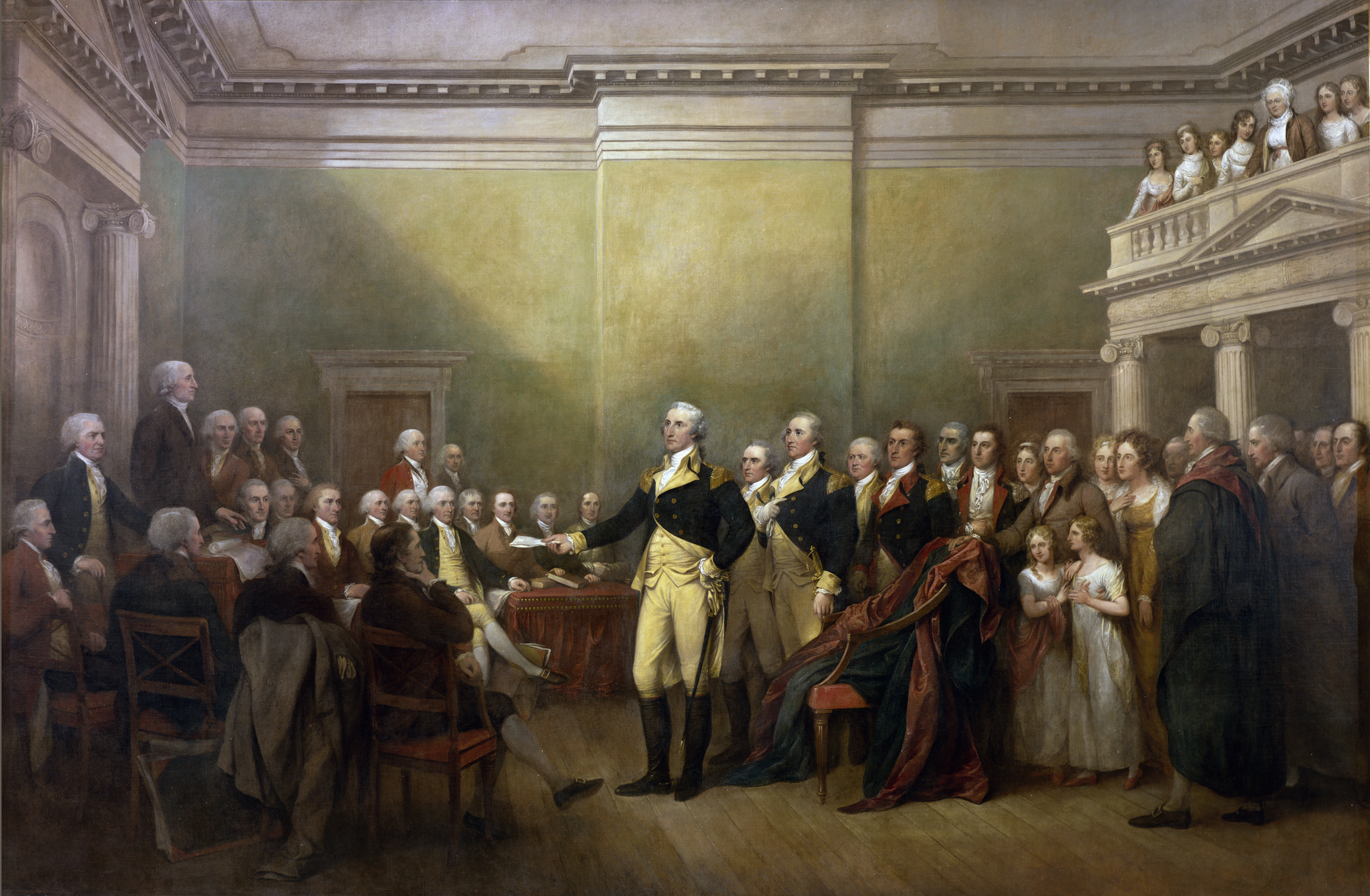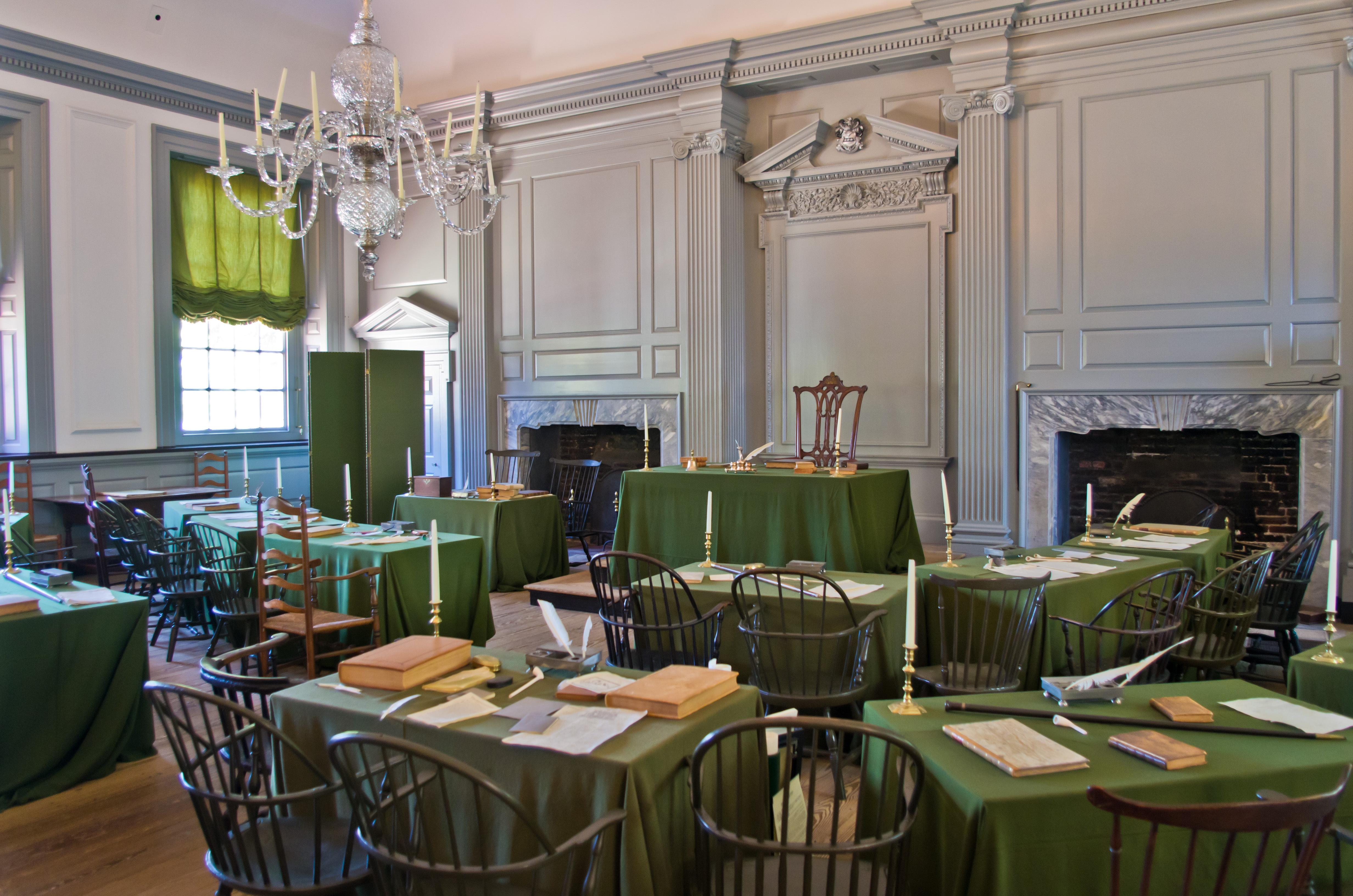|
Country Party (Rhode Island)
The Country Party was a political party in Rhode Island in the Confederation and early Federal periods, from about March 1781 until the death in office of its leader, Governor Arthur Fenner, in October 1805. At its peak of influence, it controlled the Rhode Island General Assembly and dominated state politics from 1785 to 1790. A stridently Anti-Federalist party, it was instrumental in resisting ratification of the Constitution and was the organized vehicle for political expression of popular views that led to Rhode Island both disrupting consensus among states under the Articles of Confederation and being the last of the original 13 states to ratify the Constitution. Rhode Island politics of the period was marked by exceptional favor for state independence. It was the first of the Thirteen Colonies to pass legislation declaring independence, doing so prior to the United States Declaration of Independence, and it was the last of the original 13 states to ratify the U.S. Const ... [...More Info...] [...Related Items...] OR: [Wikipedia] [Google] [Baidu] |
William West (Rhode Island Politician)
William West (c. 1733–1816) was an American militia general in the American Revolutionary War, Justice of the Rhode Island Supreme Court, Deputy Governor of Rhode Island, and Anti-Federalist leader. West also was a party in the first U.S. Supreme Court decision in 1791, '' West v. Barnes''.Timothy W. Larson"West v. Barnes: The First Supreme Court Decision" ''Rhode Island Bar Association Journal'', July/Aug 2010, pp. 13–15 Early life West was born in North Kingstown, Colony of Rhode Island in about 1733 to Alice Sweet and John West, a great-grandson of Pilgrim, George Soule. West's father was a large landowner and his mother sold " jonnycakes" during the American Revolution. West had been thought to be a descendant of Francis West of Duxbury, but now is believed is descended from Francis West who married Susannah Soule, a completely unrelated West Family line. In about 1755 West married Eleanor Brown, a daughter of Charles and Ellenor Brown, and granddaughter of Beriah Brow ... [...More Info...] [...Related Items...] OR: [Wikipedia] [Google] [Baidu] |
United States Bill Of Rights
The United States Bill of Rights comprises the first ten list of amendments to the United States Constitution, amendments to the United States Constitution. It was proposed following the often bitter 1787–88 debate over the Timeline of drafting and ratification of the United States Constitution, ratification of the Constitution and written to address the objections raised by Anti-Federalism, Anti-Federalists. The amendments of the Bill of Rights add to the Constitution specific guarantees of personal freedoms, such as Freedom of speech in the United States, freedom of speech, the Freedom of the press in the United States, right to publish, Freedom of religion in the United States, practice religion, Right to keep and bear arms in the United States, possess firearms, Right to assemble, to assemble, and other natural and legal rights. Its clear limitations on the government's power in judicial and other proceedings include explicit declarations that all powers not specificall ... [...More Info...] [...Related Items...] OR: [Wikipedia] [Google] [Baidu] |
Massachusetts Compromise
The Massachusetts Compromise was a solution reached in a controversy between Federalists and Anti-Federalists over the ratification of the United States Constitution. The compromise helped gather enough support for the Constitution to ensure its ratification and led to the adoption of the first ten amendments, the Bill of Rights. Anti-Federalists feared the Constitution would lead to an over-centralized government and diminish individual rights and liberties. They sought to amend the Constitution, particularly with a Bill of Rights as a condition before ratification. Federalists insisted that states had to accept or reject the document as written. When efforts to ratify the Constitution encountered serious opposition in Massachusetts, two noted anti-Federalists, John Hancock John Hancock ( – October 8, 1793) was an American Founding Fathers of the United States, Founding Father, merchant, statesman, and prominent Patriot (American Revolution), Patriot of the American Rev ... [...More Info...] [...Related Items...] OR: [Wikipedia] [Google] [Baidu] |
Constitutional Convention (United States)
The Constitutional Convention took place in Philadelphia from May 25 to September 17, 1787. While the convention was initially intended to revise the league of states and devise the first system of federal government under the Articles of Confederation, leading proponents of the Constitutional Convention, including James Madison of Virginia and Alexander Hamilton of New York, sought to create a new frame of government rather than revise the existing one. Delegates elected George Washington of Virginia, former commanding general of the Continental Army in the American Revolutionary War and a proponent of a stronger national government, to serve as President of the convention. The convention ultimately debated and ratified the Constitution of the United States, making the convention one of the most significant events in American history. The convention took place in Pennsylvania State House, later renamed Independence Hall, in Philadelphia. The convention was not referred to as a ... [...More Info...] [...Related Items...] OR: [Wikipedia] [Google] [Baidu] |
Ratification Of The United States Constitution By Rhode Island
Ratification is a principal's legal confirmation of an act of its agent. In international law, ratification is the process by which a state declares its consent to be bound to a treaty. In the case of bilateral treaties, ratification is usually accomplished by exchanging the requisite instruments, and in the case of multilateral treaties, the usual procedure is for the depositary to collect the ratifications of all states, keeping all parties informed of the situation. The institution of ratification grants states the necessary time-frame to seek the required approval for the treaty on the domestic level and to enact the necessary legislation to give domestic effect to that treaty. The term applies to private contract law, international treaties, and constitutions in federal states such as the United States and Canada. The term is also used in parliamentary procedure in deliberative assemblies. Contract law In contract law, the need for ratification often arises in two way ... [...More Info...] [...Related Items...] OR: [Wikipedia] [Google] [Baidu] |
Congress Of The Confederation
The Congress of the Confederation, or the Confederation Congress, formally referred to as the United States in Congress Assembled, was the governing body of the United States from March 1, 1781, until March 3, 1789, during the Confederation period. A unicameral body with legislative and Executive (government), executive function, it was composed of delegates appointed by the legislatures of the thirteen U.S. state, states. Each state delegation had one vote. The Congress was created by the Articles of Confederation, Articles of Confederation and Perpetual Union upon its ratification in 1781, formally replacing the Second Continental Congress. The Congress continued to refer to itself as the Continental Congress throughout its eight-year history. Modern historians, however, separate it from the two earlier congresses, which operated under slightly different rules and procedures until the end of the American Revolutionary War, Revolutionary War. Membership of the Second Contine ... [...More Info...] [...Related Items...] OR: [Wikipedia] [Google] [Baidu] |
Legal Tender
Legal tender is a form of money that Standard of deferred payment, courts of law are required to recognize as satisfactory payment in court for any monetary debt. Each jurisdiction determines what is legal tender, but essentially it is anything which, when offered ("tendered") in payment of a debt, extinguishes the debt. There is no obligation on the creditor to accept the tendered payment, but the act of tendering the payment in legal tender discharges the debt. It is generally only mandatory to recognize the payment of legal tender in the discharge of a monetary debt from a debtor to a creditor. Sellers offering to enter into contractual relationship, such as a contract for the sale of goods, do not need to accept legal tender and may instead contractually require payment using electronic methods, foreign currencies or any other legally recognized object of value. Coins and banknotes are usually defined as legal tender in many countries, but personal cheque, checks, credit c ... [...More Info...] [...Related Items...] OR: [Wikipedia] [Google] [Baidu] |
Bill Of Rights
A bill of rights, sometimes called a declaration of rights or a charter of rights, is a list of the most important rights to the citizens of a country. The purpose is to protect those rights against infringement from public officials and private citizens. Bills of rights may be '' entrenched'' or ''unentrenched''. An entrenched bill of rights cannot be amended or repealed by a country's legislature through regular procedure, instead requiring a supermajority or referendum; often it is part of a country's constitution, and therefore subject to special procedures applicable to constitutional amendments. History The history of legal charters asserting certain rights for particular groups goes back to the Middle Ages and earlier. An example is Magna Carta, an English legal charter agreed between the King and his barons in 1215. In the early modern period, there was renewed interest in Magna Carta. English common law judge Sir Edward Coke revived the idea of rights based on ci ... [...More Info...] [...Related Items...] OR: [Wikipedia] [Google] [Baidu] |
Natural Rights
Some philosophers distinguish two types of rights, natural rights and legal rights. * Natural rights are those that are not dependent on the laws or customs of any particular culture or government, and so are ''universal'', ''fundamental rights, fundamental'' and ''inalienable'' (they cannot be repealed by human laws, though one can forfeit their enjoyment through one's actions, such as by violating someone else's rights). Natural law is the law of natural rights. * Legal rights are those bestowed onto a person by a given legal system (they can be modified, repealed, and restrained by human laws). The concept of positive law is related to the concept of legal rights. Natural law first appeared in ancient Greek philosophy, and was referred to by Roman philosopher Cicero. It was subsequently alluded to in the Bible, and then developed in the Middle Ages by Catholic philosophers such as Albert the Great, his pupil Thomas Aquinas, and Jean Gerson in his 1402 work "''De Vita Spiritua ... [...More Info...] [...Related Items...] OR: [Wikipedia] [Google] [Baidu] |
Baptist
Baptists are a Christian denomination, denomination within Protestant Christianity distinguished by baptizing only professing Christian believers (believer's baptism) and doing so by complete Immersion baptism, immersion. Baptist churches generally subscribe to the Christian theology, doctrines of soul competency (the responsibility and accountability of every person before God in Christianity, God), ''sola fide'' (salvation by faith alone), ''sola scriptura'' (the Bible is the sole infallible authority, as the rule of faith and practice) and Congregationalist polity, congregationalist church government. Baptists generally recognize two Ordinance (Christianity), ordinances: Baptism, baptism and Eucharist, communion. Diverse from their beginning, those identifying as Baptists today may differ widely from one another in what they believe, how they worship, their attitudes toward other Christians, and their understanding of what is important in Christian discipleship. Baptist mi ... [...More Info...] [...Related Items...] OR: [Wikipedia] [Google] [Baidu] |
Quakers
Quakers are people who belong to the Religious Society of Friends, a historically Protestantism, Protestant Christian set of Christian denomination, denominations. Members refer to each other as Friends after in the Bible, and originally, others referred to them as Quakers because the founder of the movement, George Fox, told a judge to "quake before the authority of God". The Friends are generally united by a belief in each human's ability to be guided by the inward light to "make the witness of God" known to everyone. Quakers have traditionally professed a priesthood of all believers inspired by the First Epistle of Peter. They include those with Evangelical Friends Church International, evangelical, Holiness movement, holiness, liberal, and Conservative Friends, traditional Quaker understandings of Christianity, as well as Nontheist Quakers. To differing extents, the Friends avoid creeds and hierarchical structures. In 2017, there were an estimated 377,557 adult Quakers ... [...More Info...] [...Related Items...] OR: [Wikipedia] [Google] [Baidu] |
Philadelphia Convention Of 1787
The Constitutional Convention took place in Philadelphia from May 25 to September 17, 1787. While the convention was initially intended to revise the league of states and devise the first system of federal government under the Articles of Confederation, leading proponents of the Constitutional Convention, including James Madison of Virginia and Alexander Hamilton of New York, sought to create a new frame of government rather than revise the existing one. Delegates elected George Washington of Virginia, former commanding general of the Continental Army in the American Revolutionary War and a proponent of a stronger national government, to serve as President of the convention. The convention ultimately debated and ratified the Constitution of the United States, making the convention one of the most significant events in American history. The convention took place in Pennsylvania State House, later renamed Independence Hall, in Philadelphia. The convention was not referred to as a ... [...More Info...] [...Related Items...] OR: [Wikipedia] [Google] [Baidu] |







